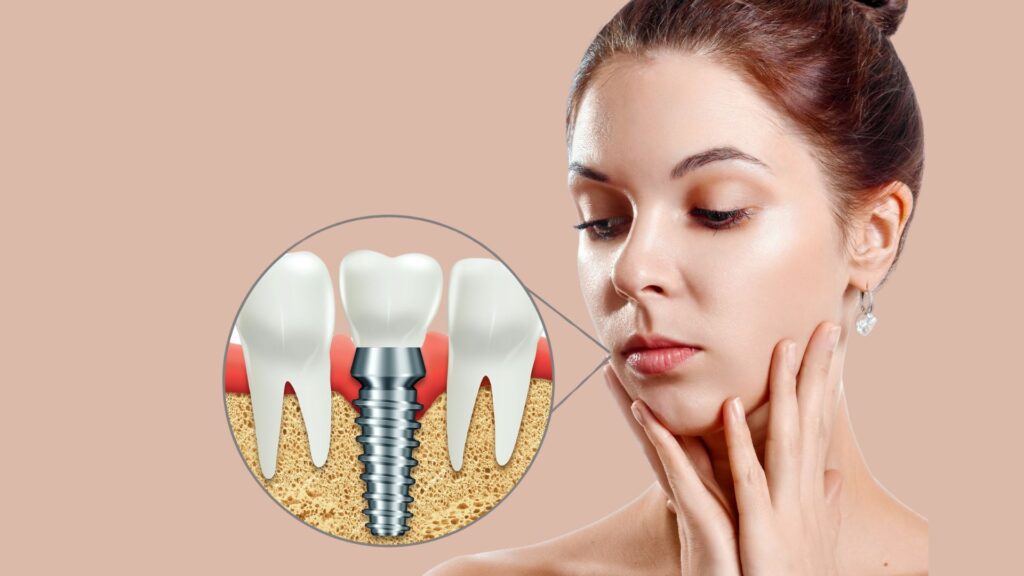Dental implants offer a permanent solution for missing teeth, restoring both function and confidence. Understanding what foods you can enjoy with your new implants is crucial for long-term success and satisfaction. This comprehensive guide will walk you through dietary recommendations from immediately after surgery to long-term eating habits.
Initial Recovery Period (First Few Days)
During the first 24-48 hours after implant surgery, it’s crucial to stick to very soft, cold foods to minimize discomfort and promote healing:
- Cold smoothies (avoid using straws)
- Yogurt
- Ice cream or sorbet
- Pudding
- Chilled applesauce
- Cold soups or broths
Soft Food Phase (1-2 Weeks Post-Surgery)
As your mouth begins healing, you can gradually incorporate more soft foods that require minimal chewing:
- Mashed potatoes
- Well-cooked pasta
- Scrambled eggs
- Soft-cooked vegetables
- Cottage cheese
- Oatmeal or cream of wheat
- Tender fish
- Pancakes soaked in syrup
Transitional Diet (2-6 Weeks)
Once initial healing has progressed, you can start introducing foods with more texture:
- Soft breads and muffins
- Well-cooked rice
- Tender meats (chicken, fish)
- Cooked vegetables
- Ripe bananas
- Pasta dishes
- Soft sandwiches
- Ground meat dishes
Foods You Can Eat After Full Recovery
After complete osseointegration (usually 3-6 months), dental implants function like natural teeth. You can enjoy:
- Fresh fruits and vegetables
- Nuts and seeds
- Steak and other tough meats
- Crusty bread
- Raw vegetables
- Hard cheeses
- Corn on the cob
- Crunchy snacks
Foods to Approach with Caution
Even with fully healed implants, exercise care with:
- Very sticky candies (caramel, taffy)
- Hard candies
- Ice (avoid chewing)
- Popcorn kernels
- Very hard nuts
- Tough meat with bones
Best Practices for Eating with Dental Implants
To protect your investment and ensure long-term success:
Cut food into smaller pieces: This reduces stress on your implants and makes eating more comfortable.
Chew evenly: Distribute food on both sides of your mouth to avoid putting excessive pressure on one area.
Stay hydrated: Drinking plenty of water helps maintain oral hygiene and prevents food particles from sticking around your implants.
Nutritional Considerations
Proper nutrition supports implant healing and long-term oral health:
Protein: Essential for healing and maintenance of oral tissues
- Soft-cooked meats
- Fish
- Eggs
- Greek yogurt
Calcium: Supports bone health around implants
- Dairy products
- Fortified plant milk
- Soft cheeses
Vitamin C: Promotes healing and gum health
- Soft fruits
- Cooked vegetables
- Fortified juices
Foods That Promote Oral Health
Include these foods in your diet to maintain healthy implants:
- Crunchy vegetables (when healed): Natural cleaning action
- Yogurt: Beneficial probiotics
- Green tea: Anti-inflammatory properties
- Cheese: Helps neutralize acid and provides calcium
- Leafy greens: Rich in vitamins and minerals
Warning Signs to Watch For
While eating, be alert for:
- Unusual pressure or pain while chewing
- Food getting stuck around implants
- Difficulty biting certain foods
- Changes in how your implants feel
Contact your dentist if you experience any of these issues.
Long-Term Success Tips
Maintain optimal implant health by:
- Following proper oral hygiene routines
- Attending regular dental check-ups
- Avoiding tobacco products
- Limiting sugary and acidic foods
- Using appropriate cleaning tools
Remember, dental implants are designed to function like natural teeth, but their longevity depends on proper care and maintenance. By following these dietary guidelines and maintaining good oral hygiene, you can enjoy your favorite foods while ensuring your implants last for many years to come.
Your dental implants represent a significant investment in your oral health and quality of life. By making informed choices about what and how you eat, you can protect this investment while enjoying a varied, nutritious diet that supports both your overall health and your dental implants’ longevity.

